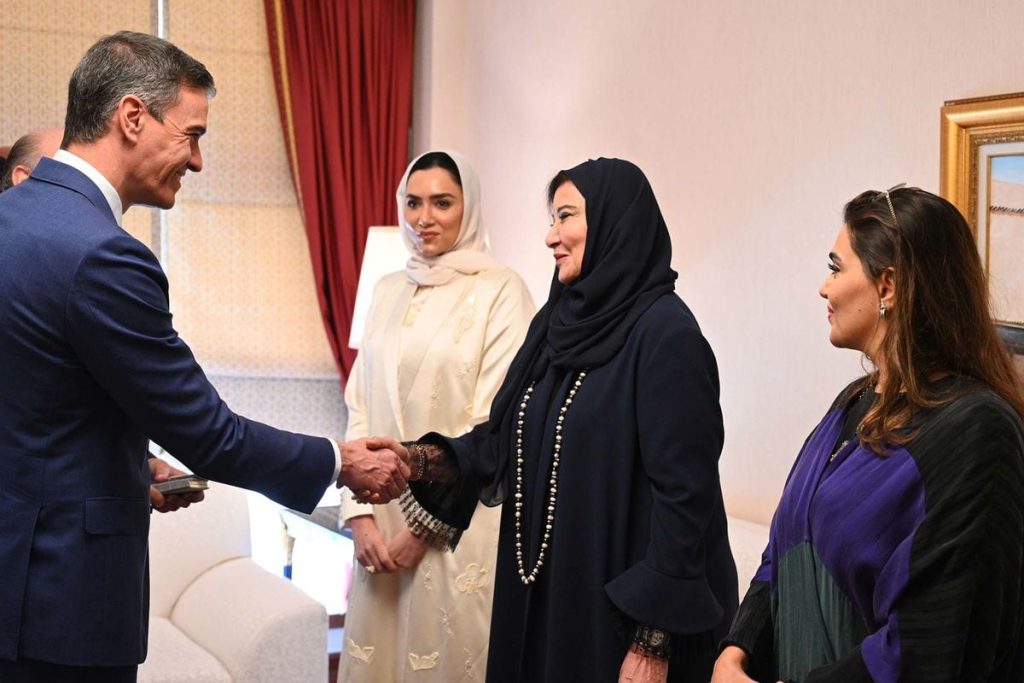The reality of women in the Gulf countries is characterized by evident inequality in rights compared to men, a matter that various international organizations protest against systematically. However, the President of the Spanish Government, Pedro Sánchez, and the Prime Minister of Qatar, Mohamed bin Abdulrahman al Zani, have emphasized the effective equality of women in the country during a joint press conference. In Qatar, women still require the authorization of a man for significant issues such as marriage, studying abroad, or traveling if they are under 25 years old, and they encounter more difficulties in accessing divorce. Sánchez, who has avoided criticizing the policies of the countries he visits, even if they are dictatorships, highlighted his meeting with seven Qatari women leaders, including athletes, scientists, businesswomen, and academics, as inspiring. However, he refrained from addressing human rights or gender equality issues in his discussions with leaders during his visit to the region, citing his primary focus on resolving conflicts such as the one in Gaza.
The Qatari Prime Minister expressed surprise at the Spanish press’s questions about women’s situation in his country, stating that women play a vital role in Qatari society, serving as ministers, ambassadors, and being highly respected as mothers, wives, and daughters. He emphasized his desire for his own daughter to have the same rights and opportunities as everyone else in the future. Sánchez and Al Zani’s remarks suggest a discrepancy between international criticism of gender inequality in Qatar and the leaders’ portrayal of women’s status in the country as respected and integrated into various spheres of influence. The focus of the joint press conference shifted from addressing women’s rights to discussing broader geopolitical issues and the resolution of conflicts in the region, diminishing the spotlight on gender equality concerns.
The absence of critical dialogue on human rights and gender equality issues during diplomatic visits to countries with questionable records in these areas raises questions about the effectiveness of international efforts to address such fundamental rights globally. Sánchez’s reluctance to confront leaders on matters of human rights and gender equality during official visits could be interpreted as prioritizing political pragmatism over advocacy for fundamental rights. The emphasis on resolving conflicts and geopolitical issues may overshadow discussions on societal inequalities and persistent gender disparities, highlighting the complexities of diplomacy in addressing these sensitive topics in a global context. The discrepancy between official statements of gender equality and the actual lived experiences of women in Qatar underscores the challenges in translating rhetoric into tangible improvements for women’s rights on the ground.
As discussions shift from women’s rights to broader geopolitical issues during official visits, the experiences of women in the Gulf countries continue to be marked by significant gender disparities and inequalities in rights compared to men. The differing narratives presented by international leaders and local realities highlight the complexities of addressing gender inequality within diplomatic frameworks, requiring a nuanced approach that balances political pragmatism with advocacy for fundamental rights. The call for effective equality for women in Qatar and other Gulf countries remains a critical issue that cannot be overlooked in international dialogues and efforts to promote human rights globally.


